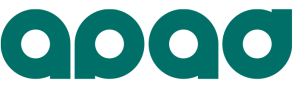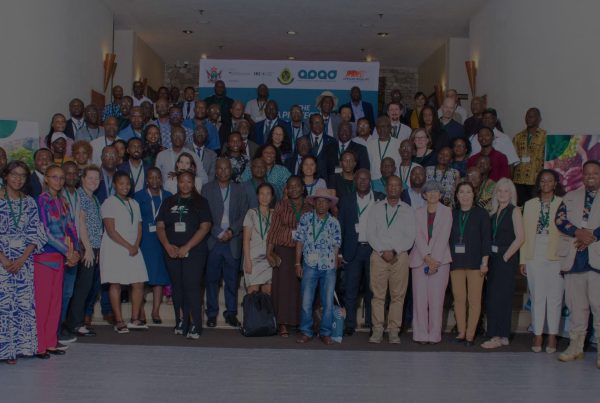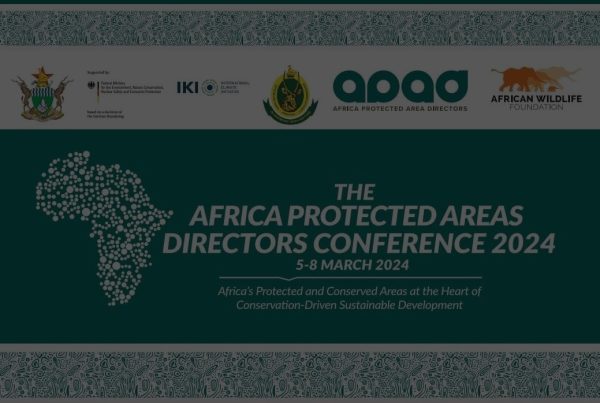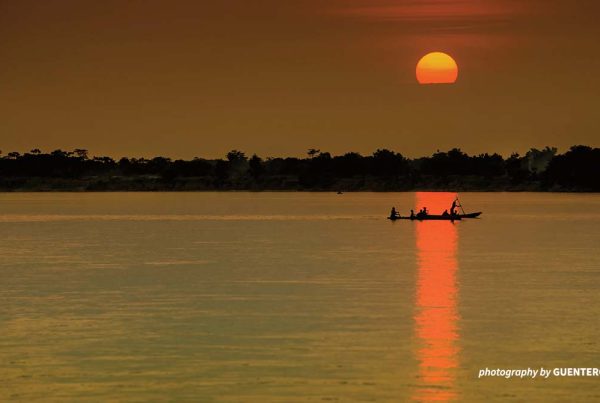The Africa Protected Areas Director (APAD) network stands as a beacon of collaboration and collective responsibility among the representatives of national authorities managing Protected and Conserved Areas (PCAs) across Africa. Since its inception in 2020, APAD has been dedicated to fostering information sharing, developing a common agenda, and promoting collaboration among Africa’s Protected Areas Directors. The African Wildlife Foundation (AWF) recognizes the significance of this platform and has made strategic investments to support its growth and impact. We sit down with Frederick Kwame Kumah, AWF’s Global Leadership Vice President, to discuss the motivations behind AWF’s commitments, the milestones achieved through APAD, and what the future holds for this instrumental network.
Why did AWF invest in the Africa Protected Areas Director (APAD) network?
The initial idea was triggered by the need for a greater voice and representation at the Africa Protected Area Congress (APAC). However, once the APADs met, it quickly became clear there was a need for the network, at the very least, as a space to share and learn from each other and, at best, to tackle intractable challenges members mutually faced. Investing in APAD as a network aligns with AWF’s commitment to elevating African conservation leadership. We are giving agency to African conservation leaders to set the agenda for conservation on the continent and beyond.
By supporting APADs, AWF aims to contribute to the sustainable management of Protected and Conserved Areas (PCAs) in Africa, reinforcing the backbone of natural infrastructure while ensuring people are at the center of these innovative solutions.
As the secretariat for APADs, AWF has facilitated and supported the engagement of APADs in conferences, workshops, and meetings with stakeholders. AWF’s involvement extends to securing endorsements from African Institutions and leaders, creating linkages with other biodiversity agencies outside the continent, aligning with critical African constituencies such as communities, youth, and women, and supporting the development of transformational initiatives with benefits to APADs such as GIS technology integration.
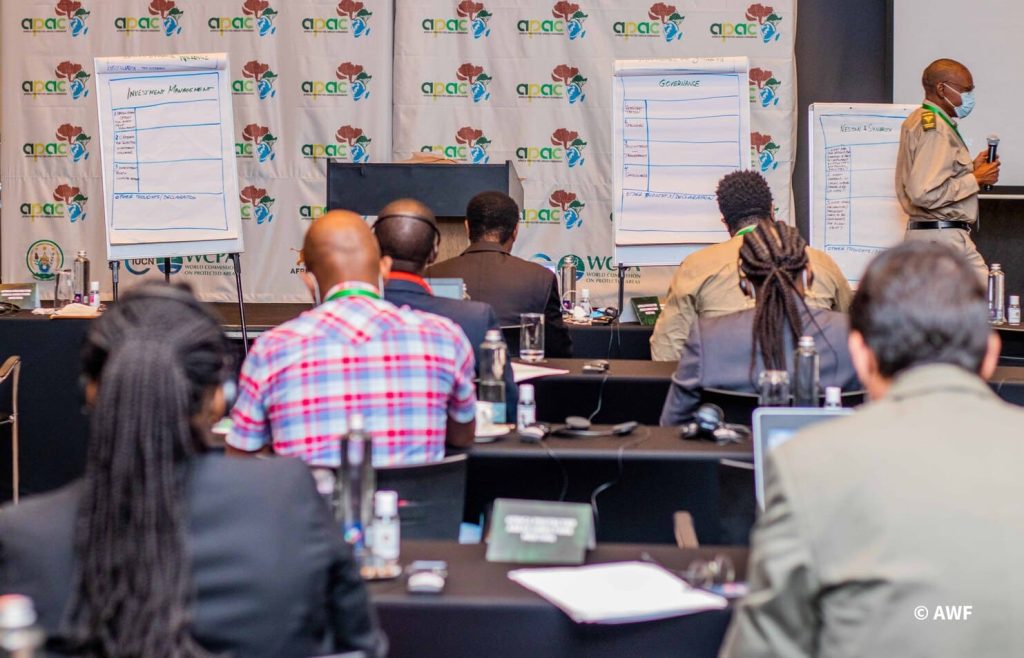
How did the Nairobi Declaration influence APAD’s direction and activities?
The Nairobi Declaration of the APADs marked a turning point in the network, as it outlined the rationale for the collaboration and formally provided an opportunity for all members to commit to the network’s goal. By signing on to the declaration, APADs brought along their government endorsements of the network; the declaration called for the establishment of a sustainable financing mechanism for Africa’s protected and conserved areas, a guiding framework for climate resilience and disaster risk reduction, and enhanced cooperation amongst Protected and Conserved Areas.
What milestones has APAD achieved since its formation?
APAD has made significant strides since its inception in 2020. The 2021 Nairobi Conference resulted in the Nairobi Declaration of Africa Protected Area Directors, providing a shared vision for strengthening Africa’s networks of protected and conserved areas. This saw the leaders champion and work towards actualizing the first-ever Africa Protected Areas Congress held last year in Kigali, Rwanda. The Kigali Call to Action, which came from the congress, encapsulated what the directors had been championing even during the virtual sessions amid the pandemic.
I vividly remember the words of the Late Honourable Benjamin Mkapa, Former President of Tanzania and AWF Board Trustee, who spoke at the very first virtual session with the directors, “The lesson from the pandemic is that there are significant costs associated with undervaluing our biodiversity and ecosystems, and that separating economic development from nature is a false choice. We need to strive for greater harmony between our economic models of growth and nature. We are on a pathway to a sustainable and resilient future where nature is centre stage. However, we can only rise if we do it right. If we set our priorities right, have the resolve to rise, and present a united front.” And indeed, we are seeing the rallying call from APADs to include other key stakeholders, as success in conservation is only possible in partnership with others.
APAD has convened quarterly since its inception, holding one in-person conference and nine virtual meetings since 2020. Engaging representatives from 39 African countries across all sub-regions, APAD has conducted surveys on the Impact of COVID-19 and financing for Africa’s Protected and Conserved Areas. These surveys have shaped APAD’s structure and objectives, providing insights from 22 countries representing over 700 protected areas.
Further, the APADs have been actively engaging in different forums such as the Africa Climate Summit, the Alliance for Indigenous People and Local Communities for Conservation in Africa, and global conferences such as the upcoming UN Climate Conference (COP28) emphasizing the inherent value of Protected and Conserved Areas delivering practical and sustainable solutions for Africa and the world.
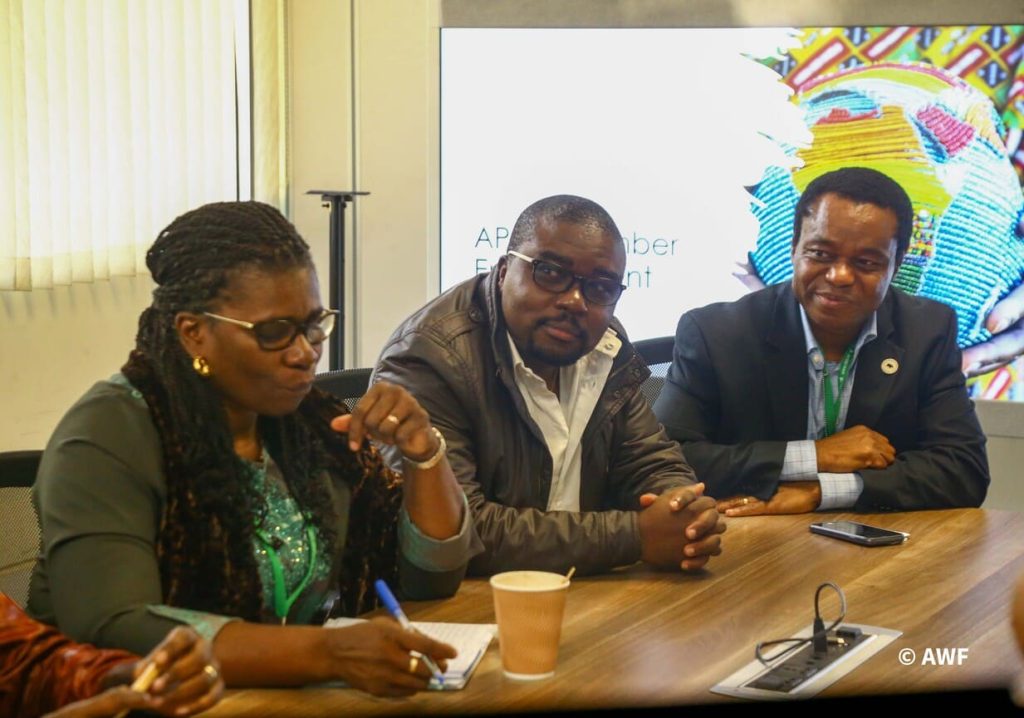
Could you share insights into APAD’s inaugural project launched in June 2023?
In June 2023, APAD initiated its first project with funding from the German Federal Ministry for Environment, Nature Conservation and Nuclear Safety (BMUV). The project focuses on recognizing the vital role of Protected and Conserved Areas in Africa’s commitment to global conservation targets. This project aims to enhance cooperation mechanisms, promote collaboration with Indigenous Peoples and Local Communities, and engage youth as co-implementers of global biodiversity goals.
Fred having a Meeting.
The funding has made it possible to host the second in-person APAD conference that will take place next year in March, graciously hosted by Zimparks. The conference is set to bring together APADs from all African regions alongside key stakeholders and partners that can propel us closer to the collective goals as a continent.
In conclusion, AWF’s investment in the Africa Protected Areas Director network signifies a strategic commitment to shaping the future of conservation in Africa. APAD’s milestones, from the Nairobi Declaration to its inaugural “Advancing Pan-African Collaboration for Improved Protected and Conserved Area Governance” project, reflect the network’s growing influence and impact. As APAD continues prioritizing self-sustainability and collaboration, AWF remains a dedicated partner, contributing to realizing the network’s shared objectives.
